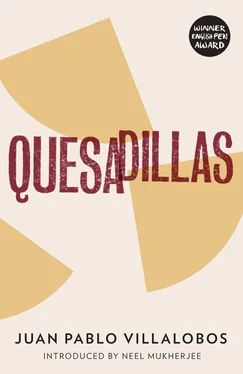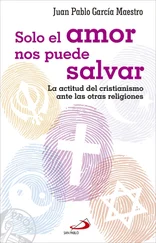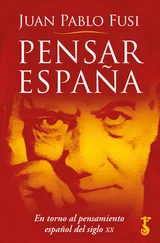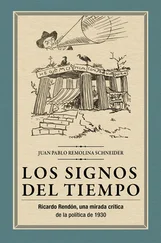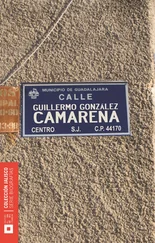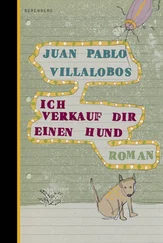Juan Pablo Villalobos
Quesadillas
‘Go and fuck your fucking mother, you bastard, fuck off!’
I know this isn’t an appropriate way to begin, but the story of me and my family is full of insults. If I’m really going to report everything that happened, I’m going to have to write down a whole load of mother-related insults. I swear there’s no other way to do it, because the story unfolded in the place where I was born and grew up, Lagos de Moreno, in Los Altos, Jalisco, a region that, to add insult to injury, is located in Mexico. Allow me to point out a few things about my town, for those of you who have never been there: there are more cows than people, more charro horsemen than horses, more priests than cows, and the people like to believe in the existence of ghosts, miracles, spaceships, saints and so forth.
‘Bastards! They’re sons of bitches! They must think we’re fucking stupid!’
The one shouting was my father, a professional insulter. He practised at all hours, but his most intense session, the one he seemed to have spent the day in training for, took place from nine to ten, dinnertime. And when the news was on. The nightly routine was an explosive mixture: quesadillas on the table and politicians on the TV.
‘Fucking robbers! Corrupt bastards!’
Can you believe that my father was a high-school teacher?
With a mouth like that?
With a mouth like that.
My mother was keeping an eye on the state of the nation from behind the griddle pan, flipping tortillas and monitoring my father’s anger levels, although she only intervened when she thought he was about to explode, whenever he chose to choke on the stream of dialectical drivel he was witnessing on the news. Only then would she go over and give him a few well-aimed thumps on the back, a move she had perfected through daily practice, until my father spat out a bit of quesadilla and lost that violet colouring he loved to terrify us all with. Nothing but a lousy ineffectual death threat.
‘What did I tell you? You need to calm down or you’ll do yourself a mischief,’ my mother scolded, predicting a life of gastric ulcers and apoplectic fits for him, as if having almost been killed by a lethal combination of processed maize and melted cheese wasn’t enough. She then tried to calm us down, exercising a mother’s right to contradiction.
‘Leave him alone. It helps him let off steam.’
We left him to suffocate and let off steam, because at that moment we were concentrating on fighting a fratricidal battle for the quesadillas, a savage struggle to affirm our own individuality while trying to avoid starving to death. On the table there were a shitload of grabbing hands, sixteen hands, with all their eighty fingers, struggling to pilfer as many tortillas as possible. My adversaries were my six brothers and sisters and my father, all of them highly qualified strategists in the survival tactics of big families.
The battle would grow vicious when my mother announced that the quesadillas were almost finished.
‘My turn!’
‘It’s mine!’
‘You’ve already eaten eighty!’
‘That’s not true.’
‘Shut your mouth!’
‘I’ve only had three.’
‘Silence! I can’t hear,’ interrupted my father, who preferred televised insults to those transmitted live.
My mother switched off the gas, left her post at the griddle pan and handed us each a tortilla. This was her view of equity: ignoring past injustices and sharing out today’s available resources equally.
The scene of these daily battles was our house, which was like a shoebox with a lid made from a sheet of asbestos. We had lived there since my parents got married; well, they had — the rest of us arrived gradually, expelled from the maternal womb one after another, one after another and finally, as if that wasn’t enough, two at a time. The family grew, but the house did not as a consequence, and so we had to push our mattresses together, pile them up in a corner, share them, so we could all fit in. Despite the years that had passed, the house looked as if it was still being built because so much of it was unfinished. The façade and the outside walls brazenly showed the brick they were made of and which should have remained hidden under a layer of cement and paint, had we respected social conventions. The floor had been prepared ready for ceramic tiles to be laid on top of it, but the procedure had never been completed. Exactly the same thing occurred with the lack of tiles in the places reserved for them in the bathroom and kitchen. It was as if our house enjoyed walking around stark naked, or at least scantily clad. Let’s not distract ourselves by going into the dodgy state of the electrics, the gas and the water; suffice it to say there were pipes and cables all over the place, and that some days we had to get water from the tank by means of a bucket tied to a rope.
All this took place over twenty-five years ago, in the 1980s, the period when I passed from childhood to adolescence and from adolescence to youth, blithely conditioned by what some people call a provincial world view, or a local philosophical system. Back then I thought, among other things, that all the people and the things that appeared on TV had nothing to do with us or our town, that the scenes on the screen were taking place on another plane of reality, an exciting reality that never touched and never would touch our dull existence. Until one night we had a terrifying experience when we sat down to eat our quesadillas: our town was the main item on the news. A silence so complete fell that, apart from the reporter’s voice, all you could hear was the rustle of our fingers carrying tortillas to our mouths. Even in our surprise we weren’t going to stop eating; if you think eating quesadillas in the midst of widespread astonishment is implausible, it’s because you didn’t grow up in a big family.
The TV was switching back and forth between two still images while the reporter repeated that the town hall had been occupied by rebels; the main road in the centre was blocked off with piles of rubbish — which the presenter called ‘barricades’ — and a burning tyre, with its inseparable comrade, an arriviste plume of smoke. Then I looked out of the kitchen window of our house, situated high up on the Cerro de la Chingada, and confirmed what was being said on the news. I could see four or five sinister, black, stinking clouds tarnishing the view of the illuminated parish church. The church deserves a special mention: a pink-stoned piece of shit, visible from anywhere in the town and home to the army of priests who forced us to follow their creed of misery and arrogance.
The news explained the whispered conversations between my parents, the repeated phone calls from my father’s colleagues: Professor So-and-so speaking, let me talk to your father. Professor Such-and-such speaking, put your father on . If I’d been paying attention I wouldn’t have needed to watch the news to realise what was going on … if it weren’t for the fact I was living through that period of supreme selfishness known as adolescence. Finally my father interrupted the national lynching of our local rebels by gesticulating angrily, scattering little bits of cornmeal pastry into the air.
‘What do they expect if they steal the fucking elections? They don’t want to lose? So don’t organise the damned elections and let’s all stop fucking around!’
That very same day, a little later on, a truck with a megaphone drove slowly past our house, loudly exhorting us to perform the incomprehensible civic-minded act of withdrawing from the street and staying shut up in our houses. Until further notice. If the order had been sent as far as the Cerro de la Chingada, where there were barely any houses, and each one was separated from the next by vast spiny expanses of acacia trees, it was because things were really fucked up.
Читать дальше
